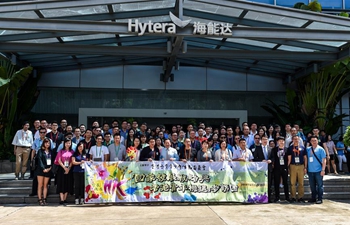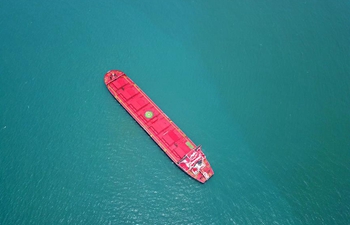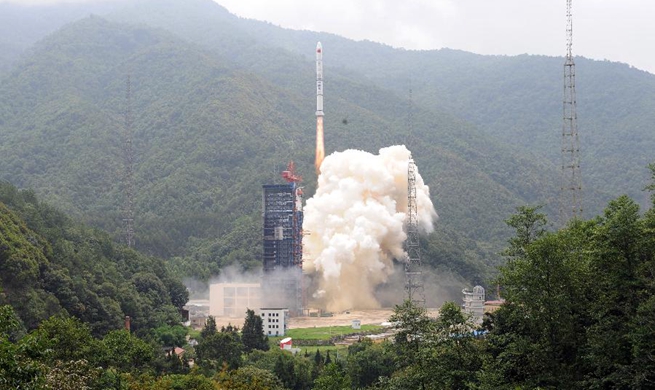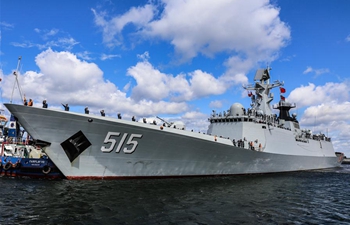by Marian Draganov
SOFIA, June 27 (Xinhua) -- The China-proposed Belt and Road Initiative could put Bulgaria on the global logistics map, a leading Bulgarian expert has said.
"The Belt and Road initiative is a timely and very welcomed opportunity for the realization of large construction projects, which will give Bulgaria a very central place on the world logistic map," Associate Prof. Teodor Sedlarski, Dean of the Faculty of Economics and Business Administration at Sofia University "St. Kliment Ohridski" said in an interview with Xinhua.
Proposed by China in 2013, the Belt and Road Initiative refers to the Silk Road Economic Belt and the 21st Century Maritime Silk Road, aiming at building a trade and infrastructure network connecting Asia with Europe and Africa along the ancient trade routes of Silk Road.
Bulgaria's cities of Sofia, Plovdiv, Burgas, Varna and Rousse could serve as logistic centers of the modern Silk Road, Sedlarski said, noting that China and Bulgaria were historically connected via the south branch of the Silk Road.
Sedlarski also said that in recent months the Center for China Economy and Politics at Sofia University, chaired by Prof. George Chobanov, has been popularizing the idea of the so-called "Rose Road" -- the section of the Silk Road crossing Bulgaria.
According to him, this section can be called Rose Road because Bulgaria is famous with its "Valley of Roses" and is among the leading countries in rose oil production worldwide, a high quality export product.
The "Rose Road" section of the Silk Road is crucial since geo-politically Bulgaria can be considered as a southeast gateway of the European Union (EU), Sedlarski said. Bulgaria's two big Black Sea ports of Burgas and Varna have maritime connections to big Chinese sea ports like Ningbo, he said. On the other hand they have direct ground connection to central Europe via cities like Burgas, Plovdiv, Varna, Rousse and Sofia, Sedlarski said.
However, the Balkan country urgently needed to improve its infrastructure, including transport and communication systems and logistic facilities, to be able to use its geographical advantages, he said.
Meanwhile, Sedlarski, a former economy minister, said it was "evident for any economic observer" that trade and investment between Bulgaria and China "are very far away from the levels they could and should be."
"Only few Bulgarian products have reached a relatively wide distribution on the Chinese market, and Chinese investments in Bulgaria are generally lacking behind the volumes in neighboring South-Eastern European countries," Sedlarski said.
Sedlarski said that in March the China's HNA Group won a concession to operate Plovdiv Airport for a period of 35 years and this "intensifies the hope for a faster penetration of Chinese companies and investments to the Bulgarian market, and increased Bulgarian exports to China."













